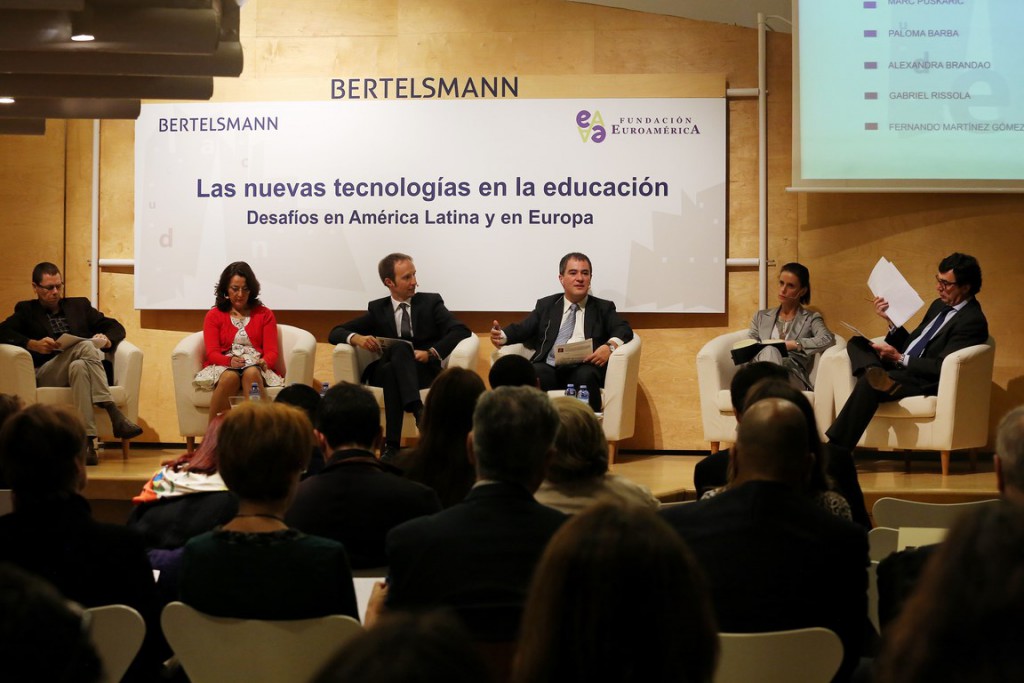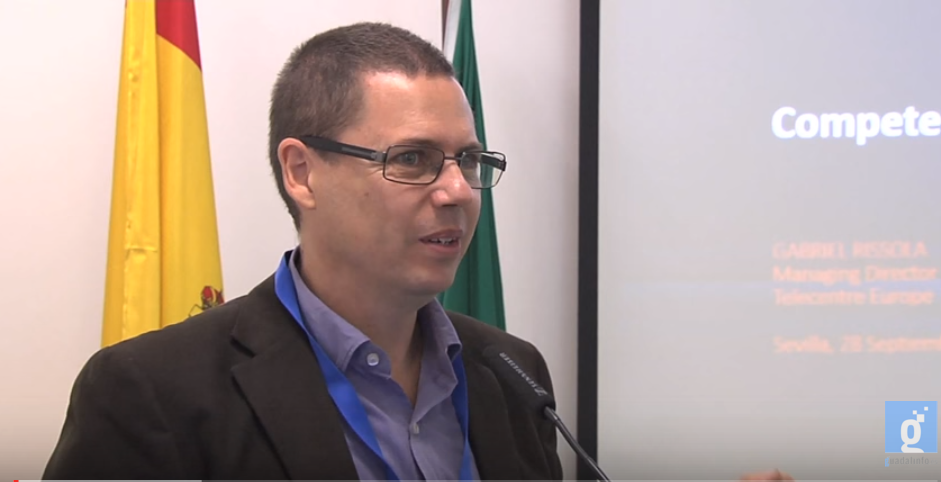02 Nov Telecentre Europe presents its digital skills programmes at Education, Training and Youth Forum 2015
02 Nov, 2015
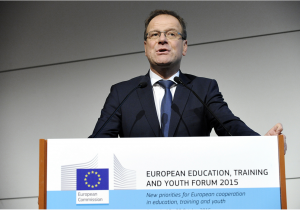 The 4th edition of the European Education, Training and Youth Forum took place in Brussels on 19-20 October 2O15 attracting more than 400 participants representing stakeholders and organisations active in the education, training and youth sectors. This year the Forum was dedicated to discussing the revised priority areas for European cooperation in Education and Training 2016-2020. These were identified at last year’s Forum and proposed in the Draft Joint Report on EU cooperation in Education and Training launched in September 2015 (see EC press release).
The 4th edition of the European Education, Training and Youth Forum took place in Brussels on 19-20 October 2O15 attracting more than 400 participants representing stakeholders and organisations active in the education, training and youth sectors. This year the Forum was dedicated to discussing the revised priority areas for European cooperation in Education and Training 2016-2020. These were identified at last year’s Forum and proposed in the Draft Joint Report on EU cooperation in Education and Training launched in September 2015 (see EC press release).
The format included plenary and panel sessions, TED-like and 10 thematic workshops. The TED-like talks were very engaging and highlighted best practices in the field of early school leaving, teachers’ education, digital learning and mutual understanding.
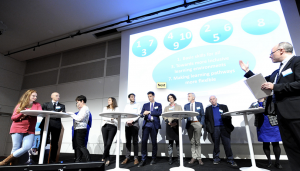 This year the strong emphasis was on sharing good practices and showcasing examples with the potential to up-scale. Telecentre Europe was invited to present the experience of telecentres in improving basic digital literacy in Workshop 1 Basic Skills for All. From the many good practices in our network we highlighted the intergenerational approach: young volunteers teaching basic digital literacy to elderly people, who in return mentor them on other soft skills. Among others, this approach is applied by e-Scouts, IT guide and Maks vzw.
This year the strong emphasis was on sharing good practices and showcasing examples with the potential to up-scale. Telecentre Europe was invited to present the experience of telecentres in improving basic digital literacy in Workshop 1 Basic Skills for All. From the many good practices in our network we highlighted the intergenerational approach: young volunteers teaching basic digital literacy to elderly people, who in return mentor them on other soft skills. Among others, this approach is applied by e-Scouts, IT guide and Maks vzw.
Participants at the workshop were impressed by the success this approach has in telecentres and many of them said that this is the one thing they will take home with them from the forum. The intergenerational approach has a great potential in a wider context, for example in companies where younger employees can teach their older colleagues the latest digital skills, while the latter can mentor youngsters in getting to know the company, its policies and processes. This is called “reversed mentoring”. The Workshop on Basic Skills for All participants concluded that any programme for development of basic skills today should include digital skills.
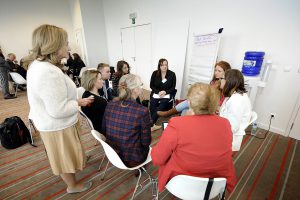 In addition, Telecentre Europe participated in Workshop 7 on Making learning pathways more flexible: recognition and validation of all forms of learning. There, Telecentre Europe ‘pitched’ its position on the need of validating and recognising digital competences acquired in non-formal education, i.e. in telecentres, public libraries and other forms of community centres where digital training takes place. Training and certification schemes aligned with broadly accepted standards like the Common European Framework of Reference for Languages have proven to be an effective tool when it is not only the Education world but also the labour market which makes use of that. This is why Telecentre Europe advocates in favour of a broad adoption of EC Digital Competence Framework, both inside its community (20,000+ telecentres in 30 countries) and by other education and employment actors.
In addition, Telecentre Europe participated in Workshop 7 on Making learning pathways more flexible: recognition and validation of all forms of learning. There, Telecentre Europe ‘pitched’ its position on the need of validating and recognising digital competences acquired in non-formal education, i.e. in telecentres, public libraries and other forms of community centres where digital training takes place. Training and certification schemes aligned with broadly accepted standards like the Common European Framework of Reference for Languages have proven to be an effective tool when it is not only the Education world but also the labour market which makes use of that. This is why Telecentre Europe advocates in favour of a broad adoption of EC Digital Competence Framework, both inside its community (20,000+ telecentres in 30 countries) and by other education and employment actors.
Overall, the Forum put a lot of emphasis on the Paris Declaration and how education can enhance social, civil and intercultural competencies. Civil society organisations saw this as a positive change compared to last year’s Forum on unemployment and economic growth and the skills needed for employability.
More info about the forum and discussions can be found through the Twitter hashtag #ETYForum and on the Forum website.


